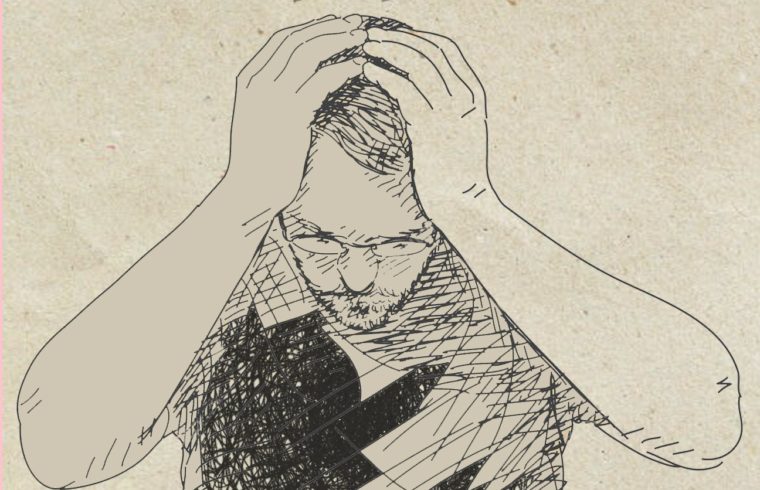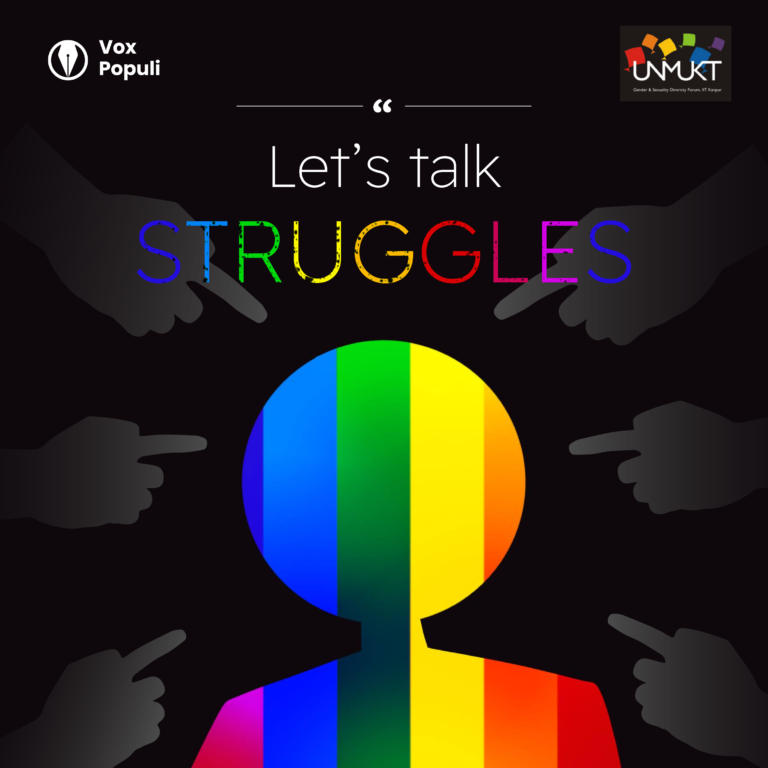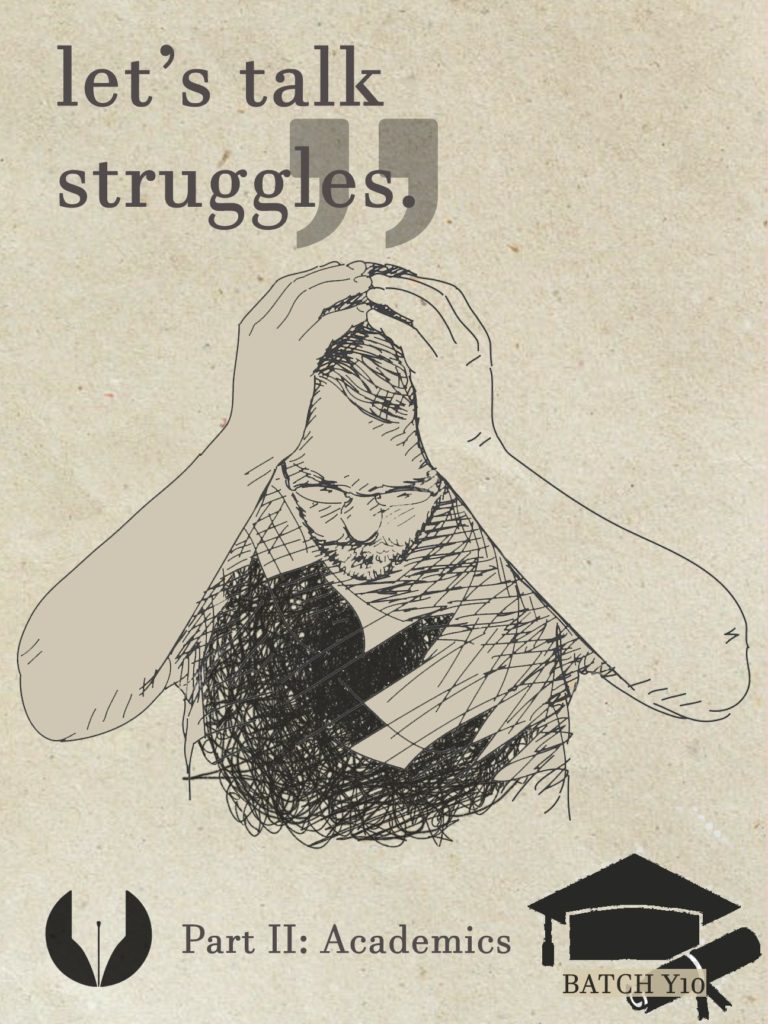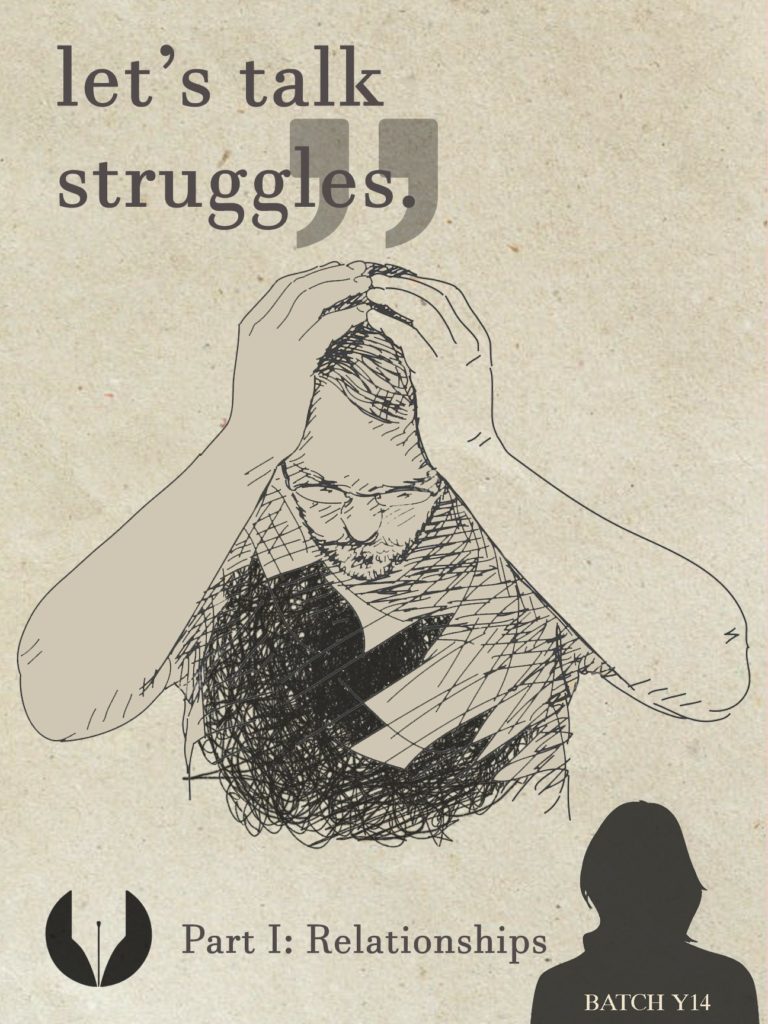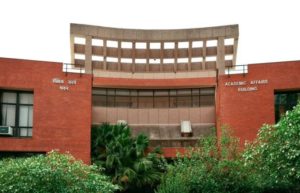Gorank Dudeja had joined IIT Kanpur in the Department of Computer Science and Engineering as a student of the Y11 batch. However, after two years of struggle, he decided to change his major to B.S in Maths and also did a minor in IME. He graduated in the year 2016. If any disabled student wants to reach out to him, his email address is gorankd1993@gmail.com
A little background on his disability: He is 100% hearing impaired but not speech impaired. He engages in day-to-day conversations by using lip reading techniques to understand what others are speaking. He wears digital hearing aids that amplify loud sounds like horns of vehicles and things like that. Gorank tells us how lip reading is not an exact science; it is more of an instinct and how it takes years to master fluency in reading lips in any one language. He had grown up talking to people in Hindi- so he was fluent in reading Hindi words on people’s lips. But, in IITK, most professors and TAs spoke in English, which was a problem for him throughout his stay on campus and continues to be even today. The only way to communicate clearly with a deaf person is sign language, which, unfortunately, not many people know.
Vox Populi got in touch with him to know his journey at IITK and how he faced his struggles. Read on to learn more about him-
Q. What are some of the academic challenges which you encountered in college, and how did you cope with them?
At IIT Kanpur, the lecture halls are quite large. Before college, I had never been to such large halls, so it was a new experience for me, even more so than normal people. Even if one sits on the first bench, the professors aren’t close enough for their lips to be discernible. So, I could never make out anything of what the professors used to say in the class. To cope with this issue, I used to note down everything the professor used to write on the board and whatever students sitting next to me wrote in their notebooks. Further, I used to study the reference books in the library and match them with the notes I had made in the class, to understand the lectures’ topics. I had to do this for every lecture I attended, every day. Can you imagine the effort it must have taken me to understand what was being taught in the class? This used to take up so much of my time, which, as you know, we never had enough. In some of the courses, our library didn’t have the reference books, and I couldn’t afford those costly books, so I had to drop most such courses. As a result of this, among other struggles, it took me five years to complete the course, which was smoothly done in 4 years by my peers.
Q. How did your physical disability affect your ability to communicate with your peers? What bearings did it have on your social circle?
Effective communication between two people always requires two things – the ability to hear and speak in a common language. I never struggled with the latter, but of course, I didn’t have the means for the former. I had a lot of friends in the first semester because everything was new then. Everyone was fixated on the fact that they had cracked JEE with amazing All India Ranks and got admitted to the best college in India. However, as time progressed, my CPI started to drop. As semesters went by, many people stopped being friends with me or even being nice to me. They thought that I was mentally retarded when they had to repeat the same sentence twice or even thrice to get me to understand what they were talking about.
But life wasn’t all that bad. There were four hostel mates and great friends who stood by me for all those years. We all helped each other with academics, life problems, friendships, relationships and whatnot. No man can be an island, right? I am glad I wasn’t wholly an island. Otherwise, I wouldn’t have made all those good memories with those people to cherish now.
Q. Was some form of help provided by the administration to facilitate your stay at IITK? How effective and useful did you find it?
No, I didn’t receive any special assistance from the administration. In every course I took, I used to tell my professors and the TAs in the first week itself, that I was deaf. All of them assured me that I could approach them anytime for doubt clearing sessions or whenever I needed any academic help. But that’s the thing, you know? Like I explained above, I wasn’t fluent in lipreading English words, so after a time, I just stopped approaching them for help and started doing everything myself.
Q. What kind of support systems exist at IITK to accommodate People with Disabilities? What more do you think could be done to improve this?
Every disability has its own set of limitations, which only the disabled person can realize fully. So, I can speak only for deafness here. I can’t say for the disabled community as a whole, for one simple reason – I don’t know how they feel and exactly what problems they encounter in their daily life.
I want to tell you a short story. I had approached the DoAA at the time to speak to him about my disability and my problems, hoping that maybe IITK had some special classes or accommodations for people like me. To my surprise, he told me that during his entire tenure in the institute, he hadn’t come across a single 100% deaf person who got admitted to the institute. He praised me for my achievement that despite having a significant disability, I could get admission in that institute. He asked me to contact him if I ever needed any help. He had advised me to take some online MOOCs, where videos have subtitles. Like Coursera, MIT Courseware, and Udacity, a few websites helped me in some of the IITK courses. But during that conversation with the DOAA, I had understood that I was alone in this and I would have to depend on only myself if I want to cope with the institute’s fast-paced environment.
I believe that IITK, which is considered to be one of the best institutes in our country, should have some accommodations for people with all types of disabilities, irrespective of whether they have encountered such people before or not.
For deaf people, sign language is the easiest way for professors to engage with those deaf students. There should be a teacher on the campus who knows sign language or a signer, for that matter. I understand that budget issues might not allow the institute to hire such teachers for every class, but we can always develop innovative alternatives, right? I can think of two ways to do this- either the institute can hire one such teacher for deaf students, or there can be some arrangement for the deaf student to hire someone to translate the lectures to them- and the administration could reimburse the cost for the same- up to a limit, of course. Like the DOAA had said, there were not many deaf people enrolling in IITK, so I don’t think it would cost the administration much to implement this. If any such program is ever implemented in our institute, I would love to donate to that program, and I believe many other alumni will also.
Q. What do you think the campus community should know about interacting with People with Disabilities to make it more accommodating for everyone?
There should be a division inside Gymkhana or even Counselling Service, solely and exclusively for only disabled people, voted by only disabled people, and made up of only disabled people. That group should work for all the disabled people on the campus, help them assimilate in the campus, take advice, academic or otherwise, or anything else, and encourage them to engage in debates, campus elections, and everything. There may even be initiatives towards financial help for disabled students. Further, there should be a directory listing all disabled alumni of our esteemed institute, so that future disabled students can approach them on email or calls anytime. I would love to see that happen.
Q. Were you interested in or had participated in some clubs, cells? What were your experiences with the peer groups there and your involvement in the activities?
Yes, I had tried my hand in different clubs. I did a short stint in the Robotics Club and developed a small robotic car model with five other people. I tried one Dance Club class and even performed on a Punjabi song in a hall function, but that didn’t work out as deafness and dance don’t go too well together. My uncle has a professional photo studio, and I wanted to help him expand his business- so I tried out some photography club lectures as well. I tried all these clubs only in my first year because at the end of that, my CPI had deteriorated a lot, and I always felt guilty whenever I wanted to try a club. I would always think that I should be studying to improve my CPI; otherwise, my placement chances are nil. So, I then stopped participating much and focussed on my studies only.
Q. There would be several amongst us living through the unique experience of being PwD. What advice would you want to give them?
I would advise people with disabilities to approach similar seniors. Ask people like you how they coped up with the things you’re struggling in. See, this is where Gymkhana’s body or disabled alumni directory would be helpful to them, which I talked about in a previous question. If such a Gymkhana body came into existence in the future, disabled people would know where to go and whom to ask for any advice. When I was in IITK, I didn’t even know that there was no other deaf person on the campus- I came to know only when the DoAA told me.
My advice to them – Never think of yourself as alone in this whole thing. No matter how stupid it feels at that moment, ask your professors whatever doubts you may have. But most of all, enjoy yourself. I didn’t enjoy my college time because every time I tried to enjoy anything, I would feel guilty that I am not studying to improve my CPI and wasting my father’s money. My father had also taken a loan to pay my tuition fees, and I felt like that was my burden to bear. So, don’t worry about the future. I used to worry too much, in vain, because my life is going well now. I have an amazing job and an amazing support system in my family and friends. It all works out in the end, believe me on that. You will have many opportunities in the future- be it landing a job or anything else. But, this college time will never return.
Q. Is there anything else you want to tell our readers?
When I started having problems with understanding lectures in the first semester itself, I sought help from my hostel mates. But no one had enough time to hold my hand through every topic in every subject, right? As time went by, I stopped asking for help altogether. That was my mistake. I thought that they should help me and I was wrong about that. Instead, now I believe that I should have found another disabled person whose disability would have complemented mine. Like, for example, suppose I could have made a deal with an orthopedically handicapped student that I would drop him to and fro from the lecture halls to his hostel on cycle, and he can help me out with the lectures. Stuff like that, you know? Instead, I went at it alone, and I sort of, barely scraped by, in almost every course. So, that’s what I want to tell everyone – never think of yourself as alone. Help is there. You just have to extend your hand and ask for it.
Finally, through your column, I would like to tell any future deaf students or any other disabled students of IITK that they could always reach out to me at my email gorankd1993@gmail.com if they need any advice or help from me. Thank you!
Poster by- Tanya Arya
Edited by- Aditya Sonthalia




